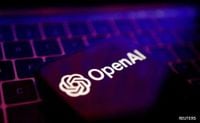OpenAI is making waves in the tech industry with its reported acquisition of Windsurf, an AI-assisted coding tool formerly known as Codeium, for approximately $3 billion. This acquisition, which marks OpenAI's largest deal to date, was reported by Bloomberg News on May 5, 2025, and is expected to significantly enhance the coding capabilities of ChatGPT, OpenAI's flagship AI chatbot.
Windsurf has positioned itself as a leader in the rapidly evolving market for AI-powered coding assistants, tools designed to write code based on natural language prompts. The acquisition comes at a time when competition in the AI coding landscape is intensifying, with notable players such as Anthropic, Microsoft (which owns GitHub), and Anysphere's Cursor also vying for dominance.
CEO Varun Mohan of Windsurf hinted at the impending acquisition on social media, stating, "Big announcement tomorrow!" This tweet, posted on the evening of May 5, generated significant buzz in the tech community. While both OpenAI and Windsurf refrained from making official comments about the deal, the acquisition is seen as a strategic move for OpenAI to bolster its suite of developer tools within ChatGPT.
Windsurf, which had been in discussions with venture-capital firms General Catalyst and Kleiner Perkins to raise funding at a $3 billion valuation, was valued at $1.25 billion following a $150 million funding round in August 2024. The startup's focus on AI-assisted coding aligns with OpenAI's goals of improving its coding functionalities, particularly as it continues to roll out updates with each new model of ChatGPT.
The coding features in ChatGPT include a code interpreter and a collaborative coding tool known as Canvas, both aimed at enhancing the developer experience. The addition of Windsurf's capabilities could further elevate these offerings, providing users with tools such as Cascade, a chat-based assistant that monitors project progress, and Windsurf Previews, which allows for real-time website previews.
OpenAI's acquisition strategy reflects a broader trend in the tech industry, where companies are rapidly acquiring startups to enhance their product offerings. Last year, OpenAI acquired Rockset, a database analytics startup, in a nine-figure stock deal aimed at strengthening its infrastructure for enterprise products.
Moreover, the competitive landscape is evolving quickly, with Anysphere's Cursor reportedly raising $900 million at a valuation of $9 billion, signaling a robust interest in AI coding tools. As the market for these technologies heats up, OpenAI is not only looking to expand its user base—which has grown to over 400 million weekly active users, up from 300 million in December 2024—but also to secure its position as a leader in AI development.
In a recent shift, OpenAI announced it would abandon its proposal to transition into a for-profit entity, a move that follows increased scrutiny and legal challenges, including a high-profile lawsuit from Elon Musk. Musk has accused OpenAI of straying from its original mission to develop AI that serves humanity, adding another layer of complexity to the company's public image.
The Windsurf acquisition is expected to close soon, pending final agreements. If successful, it will not only enhance ChatGPT's capabilities but also signal OpenAI's commitment to remaining competitive in the fast-evolving AI landscape. As the tech giant continues to innovate and expand its offerings, the implications for developers and users alike could be profound.
In summary, OpenAI's acquisition of Windsurf highlights a significant strategic shift in the AI-powered coding tools market, as the company aims to solidify its position amidst fierce competition. With the integration of Windsurf's advanced coding capabilities, OpenAI is poised to elevate the functionalities of ChatGPT, ensuring it remains a top choice for developers navigating the complexities of coding in an increasingly automated world.





